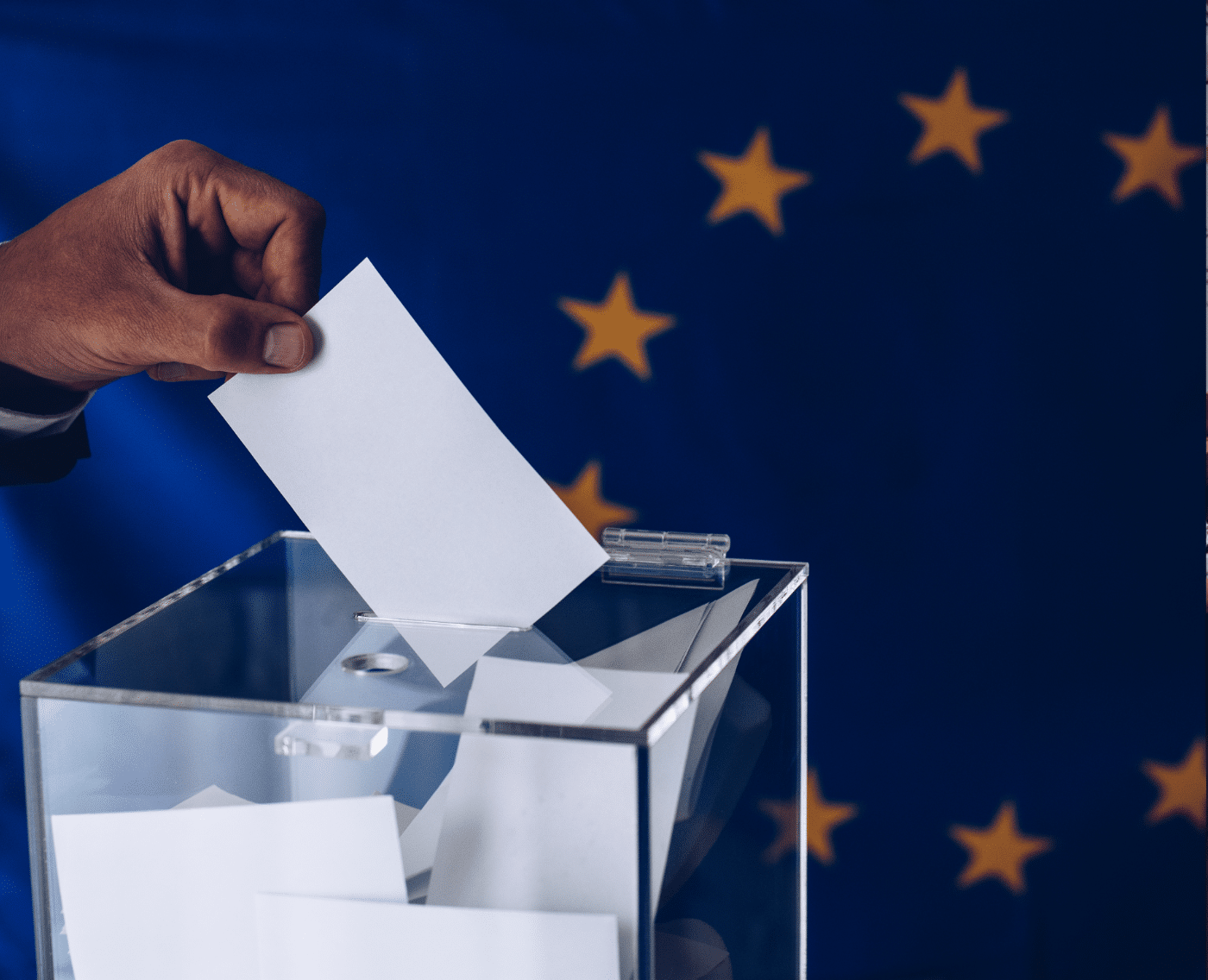EU Elections: time to hold corporations accountable for children
Having passed a Digital Services Act and an AI Act both with strong provisions for children, the outgoing EU legislators can be proud of their achievements in advancing children’s rights in the digital environment. The EU’s incoming leaders now have an even taller task: implementation, enforcement, and showing that regulation delivers practical change for young people. 5Rights sets out 4 priorities and 7 concrete deliverables for the next term.

The 2024-2029 legislature is a chance to build on the achievements of the last five years and turn children’s rights in the digital environment from policy priority into a reality across Europe. The Better Internet for Kids+ Strategy, the Digital Services Act and the AI Act – among many others– represent a leap forward but will only deliver for children if they are properly implemented, enforced and complemented by other rules, actions and reforms. The risks and harms that children face online keep evolving and so the need to protect and empower them, by design and default, is growing ever more urgent. In the next mandate, the EU needs to focus its action on four things:
First, effectively implement and enforce all policies and regulations that are in place with ambitious guidance and standards for compliance – from new rules like the DSA, AI Act and DMA to better application of the GDPR and existing consumer law, starting from the General Product Safety Regulation.
Second, fill the gaps and address instances that are not yet covered, ensuring that all children’s specific rights, vulnerabilities, needs and heightened risks are recognised and thus that all products and services likely to impact them meet the highest safety, security and privacy standards, by design and by default.
Third, working with civil society and industry to develop and incentivise solutions for the empowerment and participation of children online, notably promoting and investing in children’s rights by design with the development and uptake of technical standards on age-appropriate design and age assurance.
Fourth, streamline children’s rights in all EU’s work, establishing institutional roles and responsibilities to consider children’s rights in all digital policies, as well as mechanisms and instances to regularly ensure the participation of children and civil society representing their interests.
Next 6-9 June, as people head to the polls all over the EU, we hope they will think about future generations, about improving children’s lives and respecting their rights here and now, by design and default. To achieve this, EU institutions could focus on – at least – 7 concrete deliverables:
- Tools for a full implementation and enforcement of the DSA, notably guidelines on article 28.1, based on UNCRC General comment No. 25 and other instruments and best practice; establishing focal points on children’s rights within Digital Services Coordinators; and technical standards on age-appropriate design, age assurance and child rights impact assessments.
- Guidelines, standards, and codes of practice and conduct to implement and enforce the AI Act for children’s rights, notably on banned exploitation of vulnerabilities based on age (art. 5); consideration of children’s rights in the assessment of high-risk and general purpose AI systems; and options to submit systems impacting children to more stringent due diligence.
- Concrete, clear, and harmonised guidance on how to apply the GDPR for children, notably guidelines at the European Data Protection Board and reforming enforcement procedures to prioritise children’s protection –based on existing best practices and recognised standards, like the Irish Fundamentals on children’s rights online or the UK ICO’s Children’s Code.
- Strong protection of children as consumers in the Digital Fairness Fitness Check and consumer law, notably addressing persuasive, behavioural and addictive design practices, reversing the burden of proof on the commercial actor to show compliance, as well as covering mental health and software in enforcing the General Product Safety and Toy Safety regulations.
- Effective legislation and technologies to fight online child sexual abuse and exploitation, including by ensuring strong national criminal law frameworks and coordinated action at EU level to prevent, reduce and block the spread of CSAM.
- Streamline cooperation between and within EU institutions and bodies working on digital policy and children’s rights, with an EU Children Ombudsman, a special adviser on child rights in DG CONNECT, and mechanisms to structure children and civil society’s participation.
